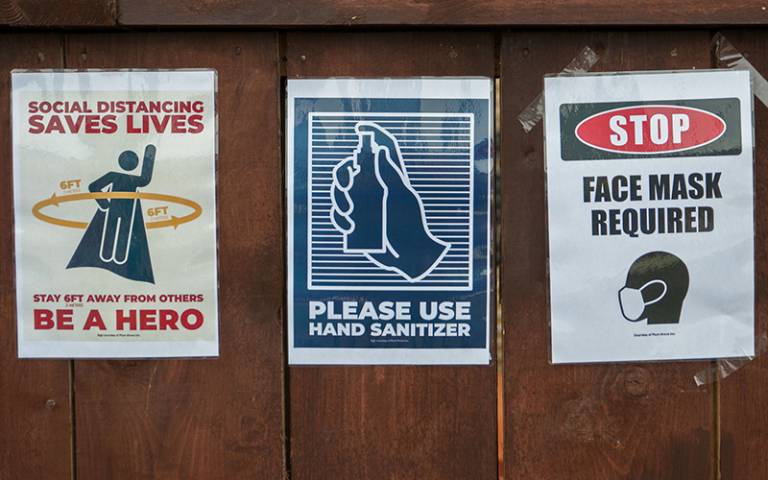People with mental illnesses report worsening symptoms during lockdown
26 April 2021
People with pre-existing mental health conditions have reported challenges posed by the COVID-19 lockdowns, such as the loss of normal coping routines, barriers to accessing care, and unequal impacts of the pandemic, in a new study led by UCL researchers.

The qualitative, interview-based study, published in Social Psychiatry and Psychiatric Epidemiology, shows that the impacts of lockdown were not distributed equally, and people in ethnic minority groups reported particular challenges.
While studies such as UCL’s Covid-19 Social Study have found that anxiety does not appear to be increasing across the UK population as a whole, the new findings suggest that many people who already had a mental health condition at the start of the pandemic are worse off due to lockdown’s impacts.
Co-lead author Dr Brynmor Lloyd-Evans (UCL Psychiatry) said: “When the UK first went into lockdown, there was a lot of speculation about impacts on mental health, but my colleagues and I felt that the voices of people who actually used mental health services weren’t being heard – even though they were likely more vulnerable to the effects of the pandemic and lockdown.
“By speaking to them directly, we learned that many people with mental health conditions lost access to their vital coping routines, while mental health care was disrupted for many as well. COVID-19 has been exacerbating health inequalities.”
The research team, based at UCL, City, University of London, and King’s College London, interviewed 49 people in England and Wales who had a range of pre-existing mental health conditions, during the first COVID-19 lockdown between May and July. They used a participatory approach, in that researchers with lived experience conducted all of the interviews and formed part of the team analysing the data.
Co-lead author, Professor Steve Gillard (City, University of London) said: “Members of the research team with their own experiences of mental health problems played a key role in shaping the questions we asked, and were central to making sense of what people told us. For us this was crucial to understanding better the impact of COVID-19 on mental health.
“The pandemic was a challenge to the research too, with the interviews and analysis all taking place via video-conference. We needed to develop new methods for doing participatory analysis online, with members of the team sharing their different perspectives on the data as we co-produced our findings through group discussion.”
Some people interviewed described a positive experience of lockdown, which provided a relief from external pressures and allowed enjoyment of a quieter world. For some, slowing down helped with mental health symptoms and provided opportunities to take up or resume activities and ways of coping.
More commonly though, study participants said their mental health difficulties were exacerbated during the lockdown, citing challenges such as a lack of social connectedness and meaningful activities, health concerns, loss of structure, reduced independence and financial hardships. For many, access to mental health care was disrupted as not all services were able to adapt quickly enough to remote working and high pressures on the NHS, while many people struggled with virtual therapy sessions due to lack of privacy at home or problems such as paranoia around cameras.
They found that people from black and ethnic minority (BAME) communities experienced heightened anxiety, stigma and racism associated with the pandemic, further impacting their mental health.
The researchers have continued their work with follow-up interviews later in 2020. Analysis is ongoing, but their findings suggest that many people with mental illnesses have faced accumulating pressures that have negatively impacted their mental health. While some have adapted to changing circumstances, some also feel overlooked.
Dr Lloyd-Evans, deputy director of the NIHR Mental Health Policy Research Unit (based at UCL and King’s College London), said: “Our findings show that it’s vital to continue improving how to support people’s mental health during times of national crisis and when in-person contact is limited.”
Links
- Research paper in Social Psychiatry and Psychiatric Epidemiology
- Dr Brynmor Lloyd-Evans’ academic profile
- UCL Psychiatry
- NIHR Mental Health Policy Research Unit
- Media coverage
Image
- Credit: Tim Dennell on Flickr (CC BY-NC 2.0)
Media contact
Chris Lane
tel: +44 20 7679 9222
E: chris.lane [at] ucl.ac.uk
 Close
Close

